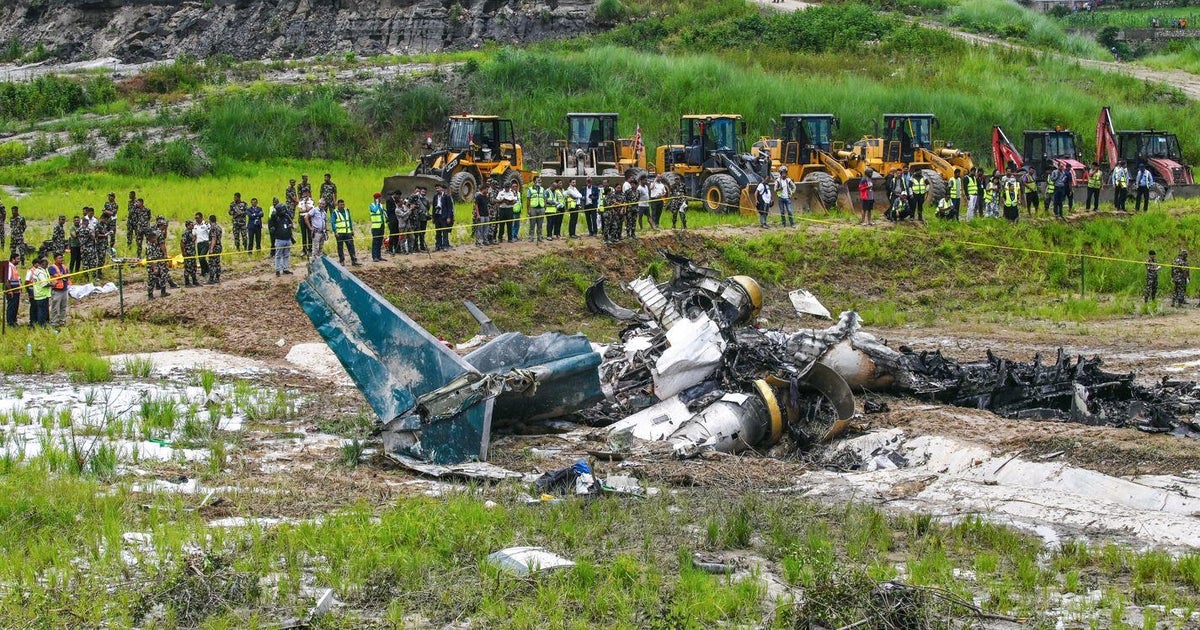China refuses to ease draconian "zero-COVID" policy despite rising cases and human and economic pain
Beijing — Rumors that China might loosen its strict "zero-COVID" policy pushed up stock markets in China and brought a little hope that life in the country might return to something resembling normal late last week. By Monday morning, however, investors were once again grappling with the reality that China's enormous economic engine could remain in a lower gear for weeks to come.
Senior officials killed hopes for a lifting of the draconian measures during a news conference on Saturday, reaffirming China's commitment to the strict lockdowns, mandatory quarantines and testing and business closures that Beijing has used for years in a bid to keep a lid on coronavirus outbreaks.
National Health Commission official Hu Xiang characterized China's COVID-19 containment measures as "completely correct" and "the most economical and effective."
But the policy doesn't seem to be working very well.
Human pain
China has not had an actual zero-COVID day — without a single registered domestic infection — since late June. On Monday, authorities reported a total of 5,436 cases in the country, a relatively tiny number compared to other large nations, but a six-month high for China.
A district that's home to roughly 1.7 million people in the southern metropolis of Guangzhou is under lockdown after 1,935 cases were reported there, while mass-testing has been ordered in some areas of Beijing due to new cases numbering only in the dozens.
A 55-year-old woman from Inner Mongolia who was struggling with anxiety disorder died last Friday after she jumped from her apartment, which was under lockdown after just two cases were reported in the building.
Only three days earlier, a three-year-old boy in neighboring Gansu province died of carbon monoxide poisoning. His father blamed the strict virus control measures for indirectly killing his son, by obstructing his family's efforts to get him emergency medical help.
Economic pain
The government's economic argument for the zero-COVID approach has also been challenged by the steep price businesses have paid.
Taiwan-based electronics manufacturing giant Foxconn, which makes 70% of Apple's popular iPhone products, recently had a cluster of COVID-19 cases among the roughly 200,000 workers at its plant in central China's Zhengzhou province. The company first banned dining at campus cafeterias to avoid crowds and mitigate the spread of the virus, but it didn't work.
Videos of plant workers, worried about catching COVID, escaping the sprawling facility by walking down highways went viral on Douyin, China's version of TikTok. Foxconn has offered staff cash bonuses in a bid to keep them on-site, but the Reuters news agency said the problems at the facility could see production of new iPhones drop as much as 30% this month, in the crucial run-up to Christmas.
Apple has now acknowledged that it expects lower shipments of some premium iPhone 14 models due partly to the disruption at the Zhengzhou plant.
Last week, the Disneyland resort in Shanghai abruptly closed its gates, trapping visitors inside as authorities administered COVID tests to every one of them, after it emerged that a single confirmed case had visited the park in the previous days.
Data published on Monday showed China's exports and imports had both contracted unexpectedly in October for the first time since the early days of the pandemic.
A survey from the American Chamber of Commerce in Shanghai said optimism among U.S. businesses in China had hit record-low levels, with only 55% of the companies surveyed describing themselves as optimistic about the next five years.
Xi Jinping not budging
While people and organizations outside China have questioned Beijing's strict COVID policy, however, in a country with limited freedom of speech, domestic voices opposing the measures are quickly silenced, and rarely heard outside the protective anonymity offered by the internet.
One rare, notable exception to that self-censorship was the lone protester who has become known as "Bridge Man." The man draped a large banner over a bridge in downtown Beijing last month, just ahead of the Communist Party's National Congress gathering, reading: "We don't want COVID tests, we want food. We don't want lockdowns, we want freedom."
Authorities quickly showed up and removed the man's banner and took him into custody. There has been no news of him since.
While the protest inspired a wave of backing online from like-minded, disgruntled citizens inside China and from abroad, President Xi Jinping has given no indication whatsoever that his signature zero-COVID policy will ease any time soon.





